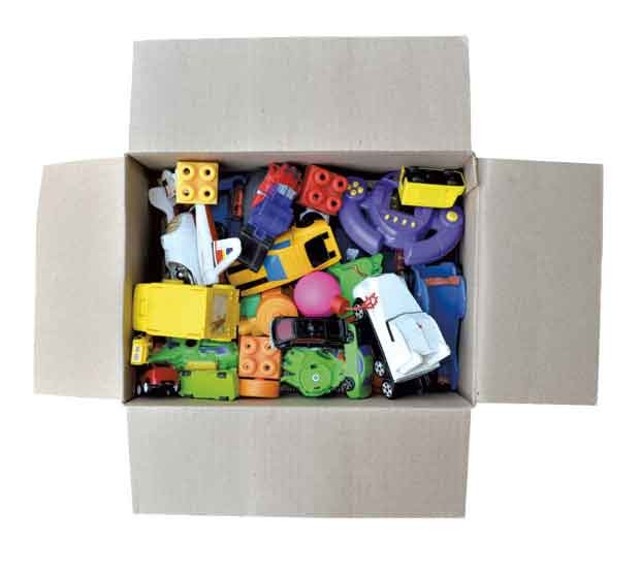Published April 1, 2014 at 4:00 a.m.
Almost 10 years ago, my husband, Jeff, and I moved to Vermont from New York City. We weren't quite ready to start a family but, when we imagined raising kids, we envisioned something less complicated than Manhattan. The city's competitive school admissions, cramped living spaces, rampant materialism and status as a potential terrorism target influenced our decision to leave. Vermont, we thought, would provide a simpler life.
Jeff and I settled into a routine; we hiked, went snowshoeing, watched movies, strolled through farmers markets. We often remarked to each other how easy our new life felt.
Then we had kids.
I had heard from a number of people that life as you know it totally changes once you become a parent. It certainly did for me and Jeff. We embraced our roles of mom and dad to our daughter, Mira, and our son, Theo. But there was no question: These little people complicated our lives immensely.
Now that Mira is almost 7 and Theo is 4, we've recovered from some of the headaches of the baby and toddler years — the sleep deprivation, the messy diaper changes, the chronic ear infections and grocery-store meltdowns. But the kid stage has brought new challenges: sibling squabbling, messy rooms and getting to school on time, to name a few.
So my interest was piqued recently when I saw a flyer advertising a series of Simplicity Parenting classes at the Lake Champlain Waldorf School in Shelburne. I was skeptical about the oxymoronic name — there's nothing simple about raising children. But I liked the idea of learning some new parenting skills to help me manage the chaos.
Before my first class, I familiarized myself with the ideas of Simplicity Parenting by reading Kim John Payne's 2010 book of the same name. The philosophy centers around the idea that slowing life down is a good thing. When we declutter our homes, carve out more family time and pare down scheduled activities, our children thrive. Sounded reasonable to me.
But some of the recommendations, such as lighting a candle for children to eat breakfast by, struck me as a bit hokey. And the author's assertion that children under age 7 should have absolutely no screen time seemed just plain unrealistic.
My heart beat quickly as I walked down the Waldorf School's long hallway on a Thursday evening. I wondered how much I'd be expected to share with strangers, and I worried that the instructor might try to tell me the "right" way to parent.
My fears dissipated as I settled into a semicircle with four other moms and one dad. The instructor, Anne Shapiro, had a friendly and casual vibe that assured me she was there to help, not admonish.
That evening's class — the second in the five-part series — focused on two concepts: Soul Fever and Home Environment.
Soul Fever? Shapiro described it as what a child experiences when he or she is out of sorts or emotionally overloaded. It's a parent's job to notice when their kids are overwhelmed and respond to it.
Next, we discussed the home environment. "If you have too many things, it makes the child feel like they have to make so many choices so much of the time," Shapiro explained. Decluttering increases a child's capacity to pay attention and play deeply.
Before class wrapped up that night, we each had to decide on a "small, doable change" we would undertake that week. I pictured Theo's room and the three deep bins of toys he never touches. I made a plan to go through them, get rid of the undesirable stuff and display just a few of his favorites in a more accessible and appealing way.
Several days later, while the kids played downstairs, I dumped out the bins in Theo's room. I found a broken gyroscope, an array of plastic party favors and plenty more stuff he hadn't touched in ages.
I put three quarters of the toys in a box bound for Goodwill. Then I replaced the bins with an old bookshelf, where I neatly lined up a small selection of toys I knew he liked. I put a desk in his room and filled it with 4-year-old-appropriate art supplies.
After about an hour, I stepped back to survey my work. I felt giddy. Theo's room looked much more inviting. And when I called him in to see what I'd done, his eyes widened and a smile spread across his face.
He played happily in his room for hours that afternoon while Jeff and I undertook a covert mission to remove the junk from the house. I'm sure Theo would have protested every single item we discarded. But, out of sight, it was truly out of mind.
Since becoming a parent, I've spent so much time trying to figure out what more my family needs to make us happy. For the first time in years, I focused on how we can work with what we already have. Rearranging Theo's room was just a small change, but it felt like the start of something bigger.
More on Simplicity Parenting
In his 2009 book Simplicity Parenting, Kim John Payne argues that the frantic pace of family life has created a disconnect between parents' expectations and the realities of childhood. If we can just slow down, we can offer our kids less stressful lives, according to the Waldorf educator, family counselor and consultant.
Payne's Waldorf roots are evident throughout his philosophy, which advocates for de-cluttering the home, carving out more family time, paring down scheduled activities, establishing predictable rhythms and limiting screen time and exposure to adult issues.
When I read the book, many of the ideas resonated with me, especially those concerning clutter. My thoughts turned to the heaping piles of books in my 4-year-old son's room, the unloved toys scattered throughout the basement, even the laundry basket full of single socks in my bedroom.
While reading the chapter about the importance of unscheduled time in children's lives, I thought about the pressure I often feel to enroll my 6-year-old daughter in sports and activities.
Payne's philosophy isn't limited to the book. The Massachusetts-based author created training materials to teach people from around the country to become Simplicity Parenting coaches who lead workshops in their communities.
In Shelburne, Simplicity Parenting coach Anne Shapiro taught a five-part workshop in March targeting local parents with children ages 3 to 12. She has more workshops and talks planned for the summer and fall.
After taking her class, I met Shapiro for coffee to chat about the philosophy. A youthful-looking 56-year-old with three adult daughters, Shapiro spent 25 years teaching in Waldorf schools before she left the classroom last spring. She became a Simplicity Parenting coach because she wanted to throw a lifeline to the stressed and struggling moms and dads she has encountered over the years.
"I want to say, 'We can save you a lot of trouble. It doesn't have to be so hard. There are ways to make this better and really put some joy in it,'" Shapiro told me.
In the previous night's class, Shapiro had described Simplicity Parenting as a "counterculture approach." I asked her to elaborate.
"It's addressing families who are not happy with what our culture is almost imposing: too much stuff, too much activity, too much information for children at the wrong stage," she said. "It's saying, 'Just take a step back. If your family life is not satisfying and you're not imparting your values to your children, step back and take a look.'"
Wendy Bratt is a mom to three sons, one adult and two teenagers who are former students of Shapiro's. She told me the Simplicity Parenting ideas — which she's been incorporating into her family life since her younger sons started Waldorf school in prekindergarten — helped to prepare her kids for adulthood.
Many of the Simplicity Parenting-inspired traditions Bratt established years ago — such as working with her kids to regularly purge and organize their rooms, singing a song at the beginning of dinner and putting a money limit on holiday spending — have endured as the kids have grown.
Some parents may ask, "Why do I need to take classes to learn how to raise my children?" But Bratt and other Simplicity Parenting proponents believe in evaluating, and improving upon, what comes naturally. "Parenting is so important and it has lost a lot of value," Bratt said. "For me, parenting is not an afterthought. We are creating the next generation."
This article was originally published in Seven Days' monthly parenting magazine, Kids VT.
More By This Author
Speaking of Use Your Words
-

Summit Not Required: Reconsidering the Race to the Top
Aug 22, 2023 -

Use Your Words: A Mom and Early Childhood Educator Explains What She Learned About Managing Her Fear of the Climate Crisis
May 23, 2023 -

Rise and Shine? A Food Writer Navigates a Nauseous First Trimester
Feb 28, 2023 -

Use Your Words: To Cope With COVID-19, We Started a Business Together
May 17, 2022 -

Use Your Words: I Made a Kid. He's Pretty Cool, but 'Everything Hurts, and I'm Dying'
Feb 22, 2022 - More »
Comments
Showing 1-1 of 1
Comments are closed.
From 2014-2020, Seven Days allowed readers to comment on all stories posted on our website. While we've appreciated the suggestions and insights, right now Seven Days is prioritizing our core mission — producing high-quality, responsible local journalism — over moderating online debates between readers.
To criticize, correct or praise our reporting, please send us a letter to the editor or send us a tip. We’ll check it out and report the results.
Online comments may return when we have better tech tools for managing them. Thanks for reading.
















































